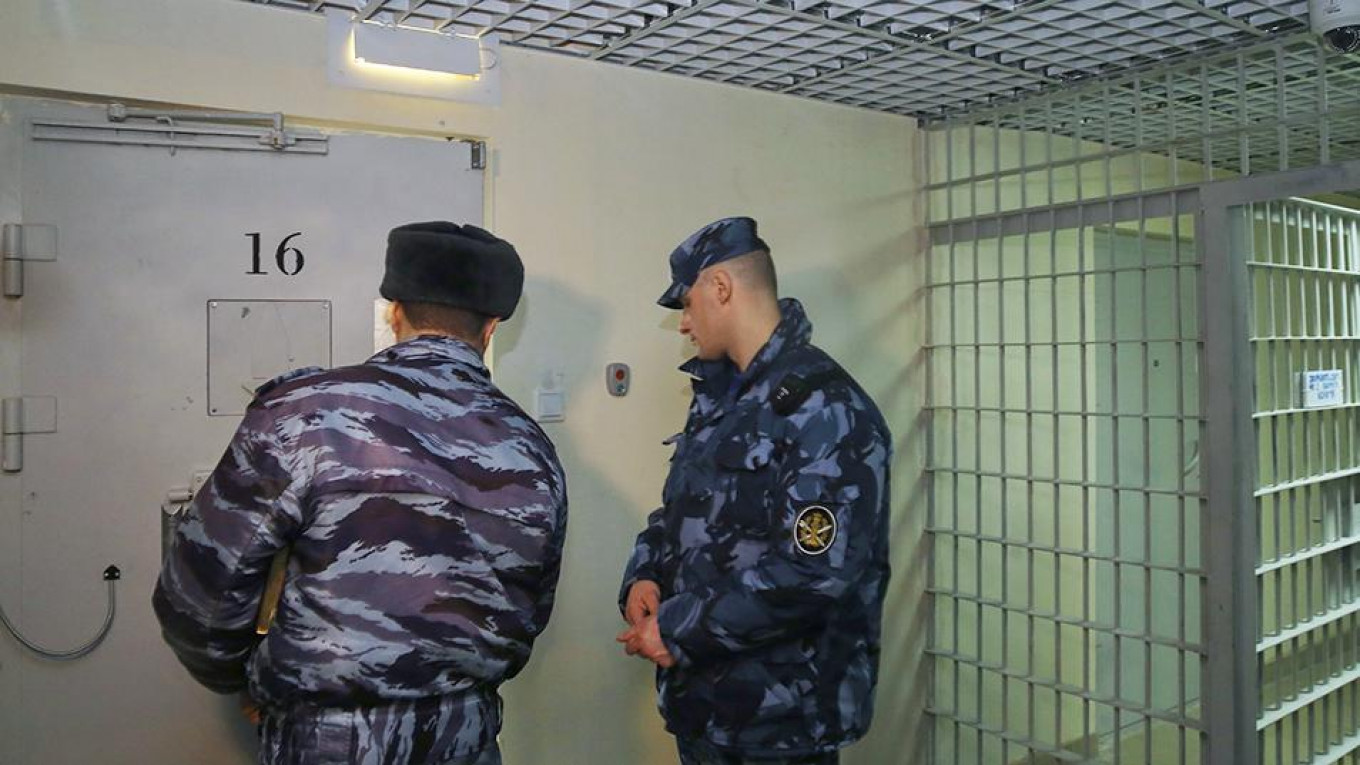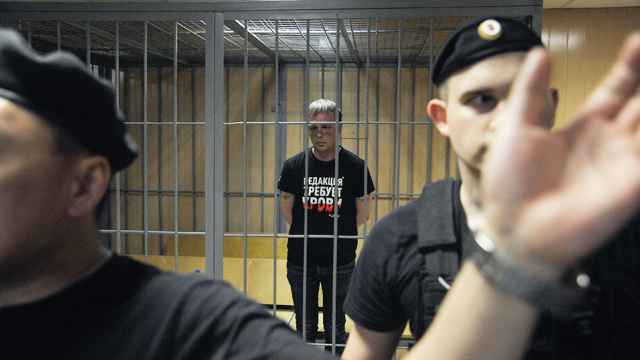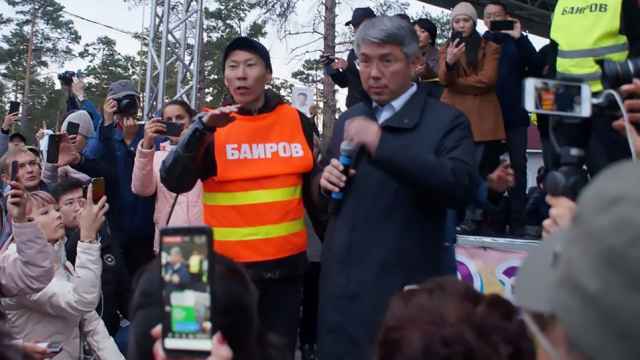A Russian entrepreneur suspected of defrauding the Russian military was reportedly raped and tortured to death inside his jail cell while on pre-trial detention, a forensic examination has said.
Valery Pshenichny, 56, was accused of embezzling 100 million rubles ($1.6 million) in carrying out a defense contract on the construction of military submarines for Russia's Defense Ministry. He was found hanging inside a St. Petersburg jail cell in February three weeks after his arrest.
Forensic medical examiners determined that Pshenichny died from neck trauma and asphyxiation, and had been raped before his death, the investigative Novaya Gazeta newspaper reported Monday.
“Electric shock burns from a hot-water boiler cord were found in his mouth. Lacerations and stab wounds on his body. A broken spine. Simply put, he was tortured,” the newspaper listed expert findings as saying.
Although authorities opened a criminal case into incitement to suicide, the forensic expert findings last week dismissed the determination that Pshenichny had taken his own life, Novaya Gazeta reported.
Friends reportedly referred to the businessman, who had developed a unique modeling technology for submarine construction and repair, as Russia’s Elon Musk.
Pshenichny suspected his business partner Andrei Petrov of embezzlement in 2016.
After his arrest, Petrov testified that Pshenichny himself and another associate had conspired to inflate the cost of the Russian Defense Ministry contract.
“He was confident in himself, in his position, he knew that he was innocent and was not afraid of anything,” the outlet cited his wife, Natalya, as saying.
“Everyone betrayed me” were Pshenichny’s last words, according to Agora international human rights organization director Pavel Chikov.
A Message from The Moscow Times:
Dear readers,
We are facing unprecedented challenges. Russia's Prosecutor General's Office has designated The Moscow Times as an "undesirable" organization, criminalizing our work and putting our staff at risk of prosecution. This follows our earlier unjust labeling as a "foreign agent."
These actions are direct attempts to silence independent journalism in Russia. The authorities claim our work "discredits the decisions of the Russian leadership." We see things differently: we strive to provide accurate, unbiased reporting on Russia.
We, the journalists of The Moscow Times, refuse to be silenced. But to continue our work, we need your help.
Your support, no matter how small, makes a world of difference. If you can, please support us monthly starting from just $2. It's quick to set up, and every contribution makes a significant impact.
By supporting The Moscow Times, you're defending open, independent journalism in the face of repression. Thank you for standing with us.
Remind me later.






